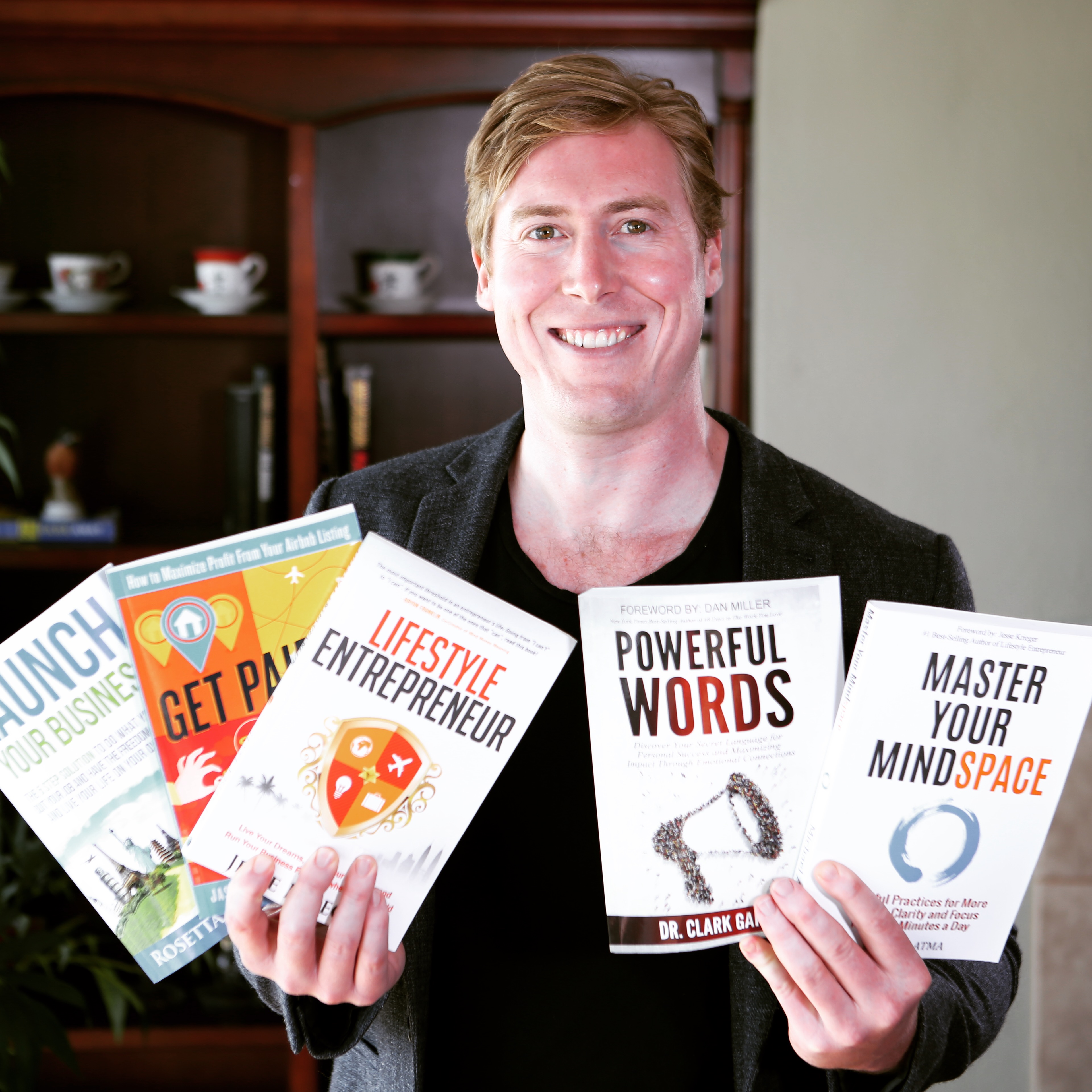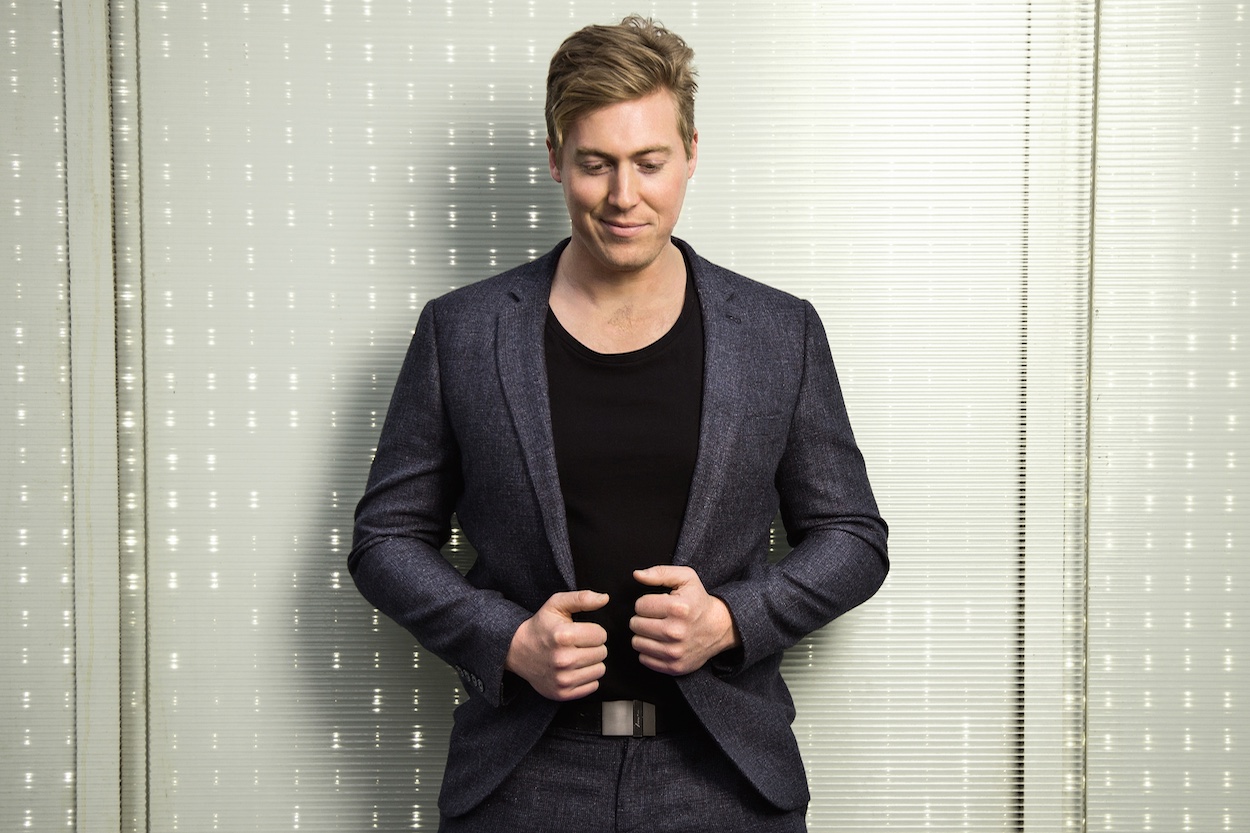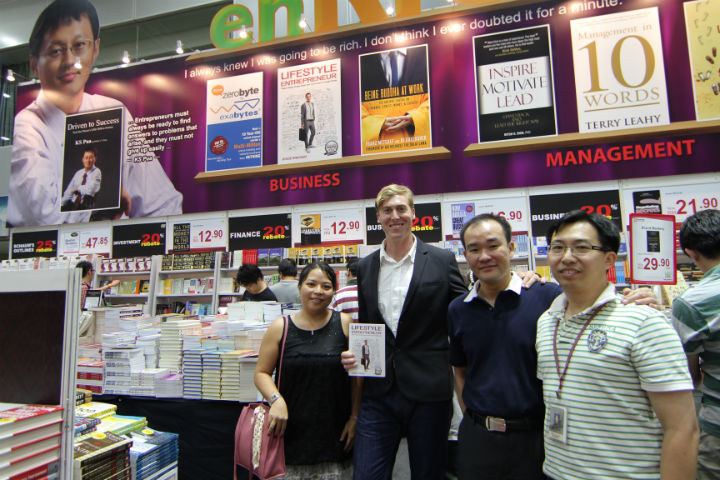For almost anyone, starting a company of her own seems like a daunting task. As future member of the “young aspiring entrepreneurs”, starting a company is something I aspire to do, yet how do I even begin to start a company? How do I ensure my company is successful?
With those questions in my I set out to ask a young entrepreneur, Jesse Krieger, how he became so successful and how, at the age of 21, he started his first company. After coming across his book, Lifestyle Entrepreneur, I became eager to learn more about his book and the work he has done; therefore, I set up an interview with Jesse and was able to get a closer look at his extraordinary journey and what he has accomplished:Jesse Krieger was born and raised in San Francisco but spends three to four months a year traveling the world. From his home base in Las Vegas to as far afield as Hong Kong and beyond, Jesse views the world as both a playground and potential market.
Q. What do you think made your book hit best-seller status in Asia?
A. It was my first time publishing, so it was the first time that I released the book. The publisher that I was working with there was really excited about it so they put a lot of marketing behind it and they did a lot of groundwork getting the book buyers and bookstores in different cities and in different parts of the country and region to carry it and promote it— this paved the way for me to come and do a book tour. On my book tour, I went to six or seven cities around Malaysia and Singapore in Southeast Asia and I spoke at book fairs and did signings. Additionally, I saw that there was the potential to be a foreign author—somebody that is perceived and received differently over there. I speak Mandarin Chinese and because I’m the guy that flew from the US and is going to be speaking partly in Chinese I got extra promotional billing for those events. I think all of those things played into it becoming initially successful over there.
 In the photo: Jesse in front of a poster in Asia, which is advertising for his work
In the photo: Jesse in front of a poster in Asia, which is advertising for his work
Q. Have you released your book in America, yet?
A. Initially it was just in Asia. However, in late 2013, I had a second publishing deal and now my book is available everywhere all the world. Subsequently, I had to put in more work on the second time around, but ultimately it became a bestseller in the US as well.
Q. You have participated in many incredible endeavors, was there one that stood out as the most influential?
A. It’s hard to replace the first experience of entrepreneurship. When I was 21, living in Nashville as a rock guitarist in a band, we ultimately decided to create our own record label. So my first real go at business and my first real company was one I was 21. I incorporated a record with my bandmate and we proceeded to raise money, a hire a team, produce our own album, release it, tour around to support it, and that was an incredible effort but it was also very rewarding. It opened my eyes to what’s possible. There’s a lot more trial by fire and learning on that first go around than in subsequent businesses.
Q. You chose to be a full time student rather than run a company. What did you learn from that and do you have any regrets about that decision?
A. No, I don’t have any regrets. I got to a point where, at age 26, I had now done the band, done our label, and subsequently founded or cofounded two other businesses. I saw that, even though I initially never wanted to go to college or cared about it, it would be valuable to get a more like broad general education, whereas entrepreneurship can be very specialized in specific. I had an opportunity to transfer to UC Berkeley and I took it. When I transferred, I was actually still running one of my former companies, USB superstore, and everything hit the fan in the first semester because of that. I had to pick one or the other and that’s when I decided to take a break from business and just focus for two years on studying economics and Chinese.
Q. What do you hope that readers take away from your book?
A. I think the main thing I would want somebody to take away from my book is that there’s a lot of possibilities in life and there’s a lot of different avenues and roads you can pursue. I hope that people get a taste and an exposure to some different ways to structure business and the different ways to pursue a lifestyle and goals. I also give a lot of specific tools and process and strategy related tips. There’s this initial thought about what’s possible and if I can shift that for somebody then I think the books has done it’s job.
 In the photo: Jesse speaking to an audience
In the photo: Jesse speaking to an audience
Q. What do you think are the most important characteristics to have in order to be a successful entrepreneur?
A. I would say that it is important to have a flexible mindset— I found that many people are rigid and unchanging going into starting a business. If you’re more open to shifting your course then you’ll eventually hit the right mix and actually make offers to the market and interact with potential customers in a way that’s really going to give you the insight you need to make the best next decision. I’d also recommend reframing how you think of success and failure. I think those are dangerous words because I really think that failure is just the time when you don’t try something. Instead of thinking: “What if I try this and I fail?” just think: “Hey, here’s an idea it seems like it could be a good one and I’m going try it and I’m willing to wager that I might be wrong. If I am, I’ll think of something else.”– that’s a much better approach then putting the extra pressure on yourself of proving that you can do it. Additionally, for people that have a really big calling, like if you want to “change the world,” a good coach of mine once said, “The bigger the vision the smaller the steps.” It’s even more important if you’re a mission-driven entrepreneur, like Andrew Defrancesco, or perhaps fighting for a cause. The corollary to that is: a movement starts with the person in front of you. It’s exciting to think: “I’m going to start this thing and change the world,” but if that’s the size of your vision then it’s really important to focus on taking daily weekly and monthly steps that are quantifiable towards it. If you’re not measuring things along the way, almost anything would fall short of that goal of changing the world.
Q. What is your best advice for young and new entrepreneurs (high school/ early college)?
A. I strongly encourage you to consider trying to start a business at least once because you’ll get the experience of seeing world and the economy from the producers standpoint. We all have had an experience of being a consumer. We all buy goods and services all the time, but it’s a very different experience to bring something to market and create that supply-chain, that business, and that brand that didn’t exist before. There’s a lot of carryover lessons you can get even if you don’t think of yourself as being an entrepreneur.
 In the photo: Jesse Krieger with the books of Lifestyle Entrepreneurs Press
In the photo: Jesse Krieger with the books of Lifestyle Entrepreneurs Press
Q. What are you working on right now?
A. My main business right now is Lifestyle Entrepreneurs Press. We publish other authors who want to look at their books as a business development tool—so somebody like me who speak on peoples’ stages, does media, and trains people. My book is the fulcrum for that and I am really focused now on helping authors become more entrepreneurial.
***Editors note:
For more tips and more information on Jesse’s journey please visit: www.JesseKrieger.com
Jesse Krieger Instagram











